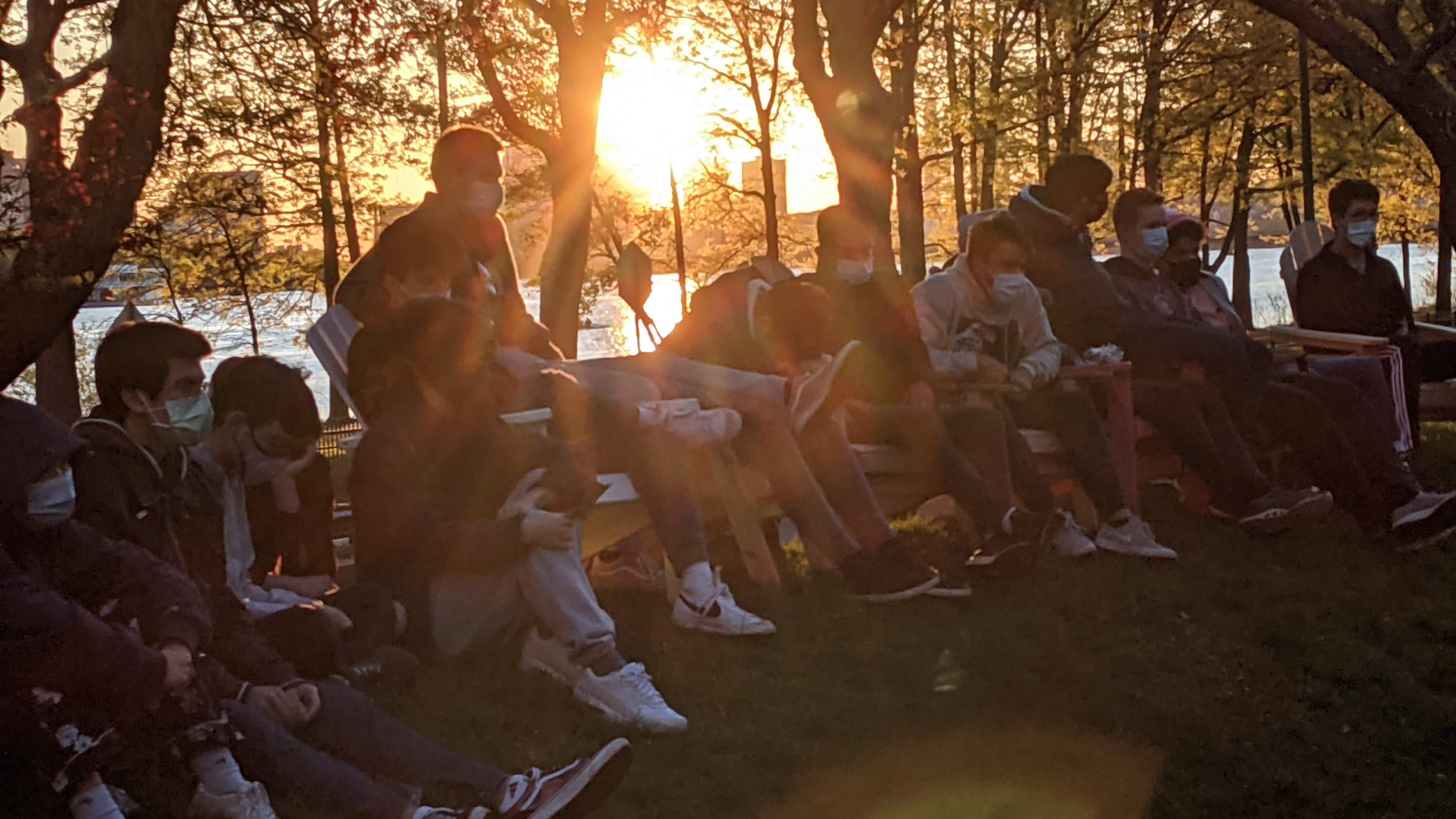HOS Blog: High School Seniors’ Search for Meaning
Seniors in May sometimes share with us that their parents start behaving particularly oddly. They tear up for no obvious reason, unearth baby pictures, tell stories about their senior’s elementary school years, or try to renew old family traditions like board game nights! Seniors are also processing the same looming transition. Some cling to home and comfort, watch movies from their childhood, and nest with their families. Others go in the other direction, developing what may feel to parents like an allergy to being at home. “I’m going to IHOP with my friends — don’t wait up. Can I borrow the car?” They are investing in those relationships and friend groups that will never be quite the same after this summer.
There’s also a deeper question many seniors are wrestling with in May: “What was this all for?” They are realizing, some for the first time, that high school cannot have simply been about getting into the right college. With that process largely in the rear-view mirror, they are beginning to see that there will always be another goal — an internship, graduate school, a first job, a promotion, a second career. There must be more to it: something more meaningful, some reason behind all the time and energy they put into the past four years.
We do young people a great disservice when we ignore the fact that they, like adults, are searching for meaning. Viktor Frankel, in his seminal book Man’s Search for Meaning, famously explored this idea and inspired the next generation of researchers. I recommend William Damon’s The Path to Purpose for those interested in an evidence-based study of the central role purpose plays in the lives of young people.
My headmaster when I was a boy often shared a story about conversations he — as a person of the cloth — had with people nearing the end of their lives. When asked what they were proudest of, very few spoke about their careers, wealth, or status. Nearly all talked about the loving relationships they had fostered and the ways in which they had improved the lives of others.
For seniors who are asking what all this was for, look first to your relationships. You have met teachers who will be life-long mentors. You have made friends who will be in your weddings years from now. You have found ways to move your school forward through your advocacy and example. And in small, quiet moments, you have supported one another with kindness and empathy. That is your legacy.
